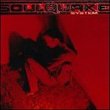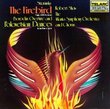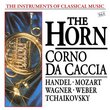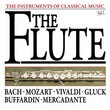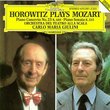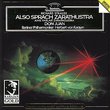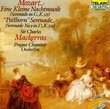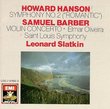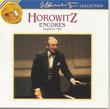| All Artists: Nikolai Rimsky-Korsakov, Andrey Anikhanov, André Anichanov, St. Petersburg State Symphony Orchestra Title: Rimsky-Korsakov: Symphonies No. 1 & No. 2 "Antar" Members Wishing: 0 Total Copies: 0 Label: Naxos Original Release Date: 1/1/1994 Re-Release Date: 12/13/1994 Genre: Classical Style: Symphonies Number of Discs: 1 SwapaCD Credits: 1 UPC: 730099581127 |
Search - Nikolai Rimsky-Korsakov, Andrey Anikhanov, André Anichanov :: Rimsky-Korsakov: Symphonies No. 1 & No. 2 "Antar"
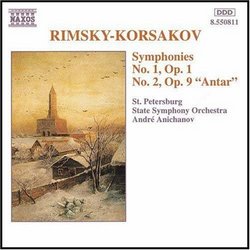 | Nikolai Rimsky-Korsakov, Andrey Anikhanov, André Anichanov Rimsky-Korsakov: Symphonies No. 1 & No. 2 "Antar" Genre: Classical
|
Larger Image |
CD DetailsSimilar CDs
Similarly Requested CDs |
CD ReviewsBrilliant disc--Melodiya era sound Micromegas | Ada, OK | 06/22/2007 (4 out of 5 stars) "I adore these two symphonies, which I first heard some time ago on an old Melodiya disc conducted by Svetlanov. Though written by a very inexperienced young man, he was also extremely talented, not to mention the fact that both were substantially revised later in life. Each work teems with great orchestration, melodies, and fascinating ideas--Antar more than Symphony No.1, perhaps, but even that early symphony displays more than its share of brillance (even when it occasionally sounds like one of Schumann's symphonies--esp. No.2 at times). Now to this version. The most damning critique of this disc (as seen in the earlier review) is the sound. It's a bit dark and cavernous, which can be bad or good. Some detail is lost, but it reminds me of that glorious Melodiya sound which, to me, is extremely Russian. I like that feeling of depth around the music, which the orchestra has to fight to overcome. The sound is at the worst in the second movement of Antar, which gets a little bloated (but it's played with spirit, so you can forgive it). But make no mistake--this is a Russian orchestra, and they play this music brilliantly. I totally disagree that this is poorly interpreted; on the contrary, I think Anichanov and the St. Petersburg SSO gives a remarkable intepretation that, making allowances for the sound, is highly competitive. I have heard EVERY version of these symphonies, all of which are good; but where the new Svetlanov recordings for RCA (for example) are much slower and a bit less involved, Anichanov is fiery and passionate. Symphony No.1 sounds brilliant here--a swift allegro that captures the elan of a young man writing his first symphony. I love the slow movement with its haunting, folk-like theme...it comes out great here, though it could use just a touch more power in the climax. The scherzo is great, though I wish I could hear the strings a bit more in the opening...but the finale is powerful and to me, really sets this version apart. Anichanov uses an earlier revision of Antar (the second instead of the third, I think), which to me is the better version. It's more exotic sounding, and not so smooth around the edges. To compare, listen to Svetlanov's recent RCA version, where there are some substantial differnces. The St. Petersburg SSO makes this music sound enchanted and magical--great playing and a real sense of atmosphere. Here, I would argue, the sounds even heightens this effect--particularly in the second movement. If you don't know Antar, you're in luck, because it's perhaps his most colorful piece next to Scheherezade. Gorgeous melodies and immaculate orchestral colors...you see where Stravinsky, Scriabin, and Debussy came from here (indeed, Debussy was an admirer of Antar in particular). I think the orchestra really nails the moody, "Oriental" opening, which can sound too episodic in some hands (I love Zinman's version, but it doesn't sound very symphonic to me). The second movement has energy and drive, and the third movement contrasts the procession with the love music perfectly. The third movement is almost a mirror image of Grieg's "Arabian Dance" from Peer Gynt Suite No.2: it starts off with an "Arabian" procession, very colorful, and then subsides into an intimate love song. The true heart of the work is the last movement, though, with its incredible melody--perhaps the best he ever wrote. It's played beautifully here, and despite any other misgivings, it makes me return to this version more often than others. So risk the sound, keep an open mind, and enjoy the performance. There are other versions out there, but this has strenghts that the others lack (and vice versa, to some degree). But bottom line, these are two of the most winning Russian symphonies, and no Rimsky-Korsakov library is complete without them." Burn the money instead. Julian Grant | London, Beijing, New York | 09/06/2001 (1 out of 5 stars) "Atrocious. Emphatically not a bargain - recorded in a defeating bass heavy bathroom acoustic so that most of the scoring details are lost, the interpretations are rudimentary to put it kindly, sounds like little more than sight-reading in places and the speeds in 'Antar' are cavalier and often just plain wrong, divesting the score of all of its magic. Avoid." Our Own Civil War (1861-1865) - Influence on Russia Nancy Moran | Baltimore, Maryland USA | 09/20/2001 (5 out of 5 stars) "Rimsky-Korsakov came from a Russian naval family. He graduated from the Naval Academy at St. Petersburg (then the capital of Russia) and went to sea where he visited New York, Baltimore and Washington, D.C. during our own Civil War. Symphony No. 1 was completed during this period and was performed for the first time New Year's Eve, 1865 to a warm reception. R-K was then 21 and this was the first performance of a full-fledged symphony by a Russian composer. The second symphony was completed in 1868. Both were amended subsequently, the first in 1884, the second in 1876.
. . . . On my Sony boombox, all the flavor of both pieces comes shining through and I can hear the popular, well-known "Scheherezade" foretold. . . . . The recordings were done by the St. Petersburg State Symphony Orchestra under the direction of André Anichanov. (Perhaps at some time in the future they can be rerecorded by the New York Philharmonic.) Naxos has done us a great service by releasing this beautiful material with such historic significance at such an attractive price. I have found solace and inspiration in this album in the days following 9/11/01." |

 Track Listings (8) - Disc #1
Track Listings (8) - Disc #1


